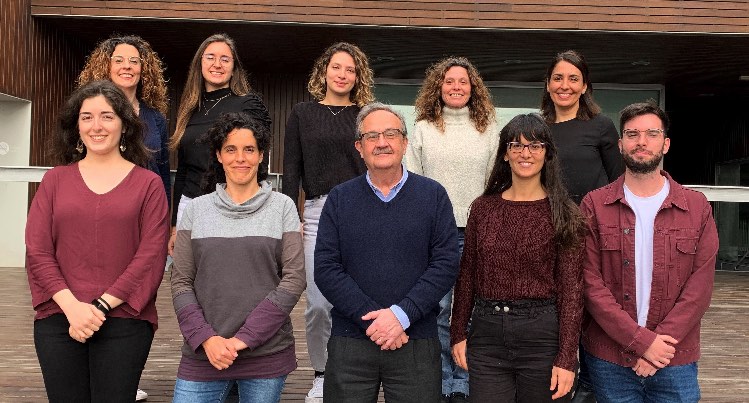A novel immune response mechanism against Epstein-Barr virus infection
Scientists from UPF and IMIM have discovered that Natural Killer cells can reduce Epstein-Barr virus infection without killing B lymphocytes, their host cells.

Researchers from UPF and Hospital del Mar Medical Research Institute (IMIM) describe a novel mechanism whereby Natural Killer (NK) cells can contribute to the immune control of Epstein-Barr virus (EBV) infection. The study, directed by Prof. Miguel López-Botet, involves Elisenda Alari-Pahissa as first author and has been published in PLOS Pathogens.
EBV is a herpesvirus that preferentially infects B lymphocytes. The immune response is not able to completely eliminate the pathogen, which remains hidden. When the virus reactivates, it produces new infectious particles that spread to other cells and are released in saliva allowing its transmission. Though EBV infection is very frequent and generally goes unnoticed in healthy individuals, it can occasionally cause infectious mononucleosis as well as severe disorders in patients with immune system deficiencies, in addition to contributing to the development of some tumours.
Together with T lymphocytes, NK cells play an important role in the defense against this virus. One of their functions depends on the presence of antibodies that bind to the viral molecules exposed on the membrane of infected cells. Upon NK cells interaction with these antibodies they become activated releasing substances that kill infected cells.
Antibodies allow NK cells to detach viral particles from the B cell surface, reducing the likelihood of infection.
In a previous study the authors observed that when viral particles are bound to the surface of B lymphocytes prior to infection, EBV-specific antibodies activate NK cells but B lymphocytes are not killed. In the present report they describe that, under these conditions, NK cells can also reduce infection.
Elisenda Alari explains that: “by labelling viral particles bound to the surface of B lymphocytes we observed that they were transferred to NK cells”. EBV-specific antibodies allow NK cells to take viral particles away, internalizing part of them. “In this way, the likelihood of infection of the B cell is reduced”, sums up Miguel López-Botet, UPF full professor and immunologist at Hospital del Mar. “Yet, since the efficiency of the process is limited, we must consider the possibility that NK cells may get exhausted in situations of high viral load, in the benefit of the virus”, he adds.
“This mechanism could work in response to other viral infections, although its effectiveness in each case is likely to depend on the time the viral particle takes to enter the cell, becoming then inaccessible to the interaction with antibodies and NKs”, Alari-Pahissa concludes.
Reference article:
Alari-Pahissa E, Ataya M, Moraitis I, Campos-Ruiz M, Altadill M, et al. (2021) NK cells eliminate Epstein-Barr virus bound to B cells through a specific antibody-mediated uptake. PLOS Pathogens 17(8): e1009868. https://doi.org/10.1371/journal.ppat.1009868.
Related content:
López-Montañés M, Alari-Pahissa , Sintes J, Martínez-Rodríguez JE , Muntasell A , López-Botet M. Antibody-Dependent NK Cell Activation Differentially Targets EBV-Infected Cells in Lytic Cycle and Bystander B Lymphocytes Bound to Viral Antigen-Containing Particles. J Immunol 2017 Jul 15;199(2):656-665. doi: 10.4049/jimmunol.1601574. Epub 2017 Jun 19.
